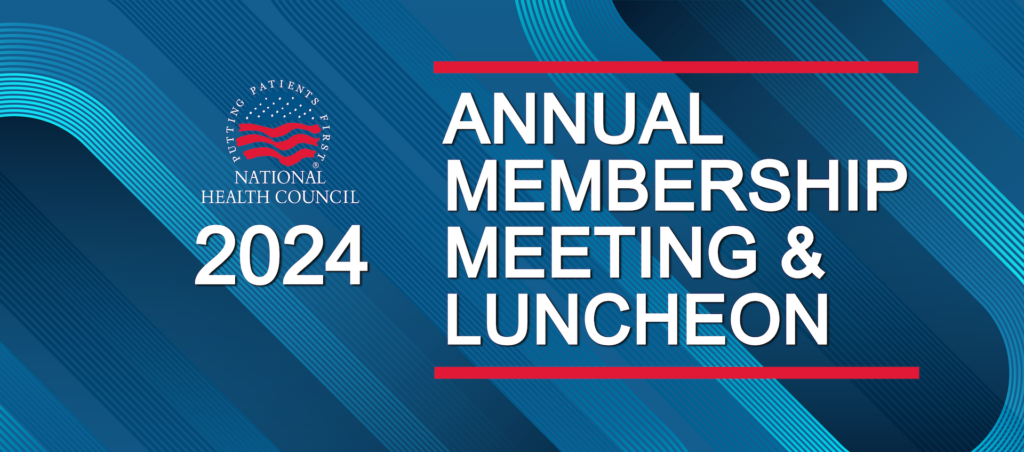

Updated Member Categories & Dues Structure Reflect Increased NHC Value
By: Bob Scott, NHC, Director, Member Services
For the past three years, the National Health Council (NHC) has worked with its diverse membership to overcome challenges presented by the COVID-19 pandemic. On top of an already broad spectrum of member benefits that expanded in the last three years, the NHC has offered increased value through its public policy and advocacy efforts, programmatic work, and in-person and virtual meetings.
In June 2020, the NHC’s Board of Directors also responded to the anticipated impact of the pandemic and established a dues reduction for three years. This reduced rate expired at the end of 2023 and, without Board action, would revert to pre-pandemic levels in 2024. Last summer, however, the NHC Board voted to increase dues in most member categories but NOT return to the pre-pandemic rate. Our projections anticipate a 10% increase in overall dues revenue as compared to those collected during the reduced rate period. In addition, the Board approved a refresh of membership categories to rename categories for accessibility and ease, reducing the number of categories from five to three.
Look at the changes below:
- Voluntary Health Associations (VHAs) became Patient Organizations (POs).
- PO members comprise individuals who live with chronic disease(s) and/or disability(ies) and their family caregivers. They engage in an array of direct-service programs, which can include membership, support, advocacy, education, and research. Organizations in this category focus on specific patient and caregiver communities, are established as a tax-exempt nonprofit, and gain support for their mission from a wide range of the public.
- Please note: Patient Organization members must meet the NHC’s minimum Standards of Excellence to be accepted into membership.
- PO members comprise individuals who live with chronic disease(s) and/or disability(ies) and their family caregivers. They engage in an array of direct-service programs, which can include membership, support, advocacy, education, and research. Organizations in this category focus on specific patient and caregiver communities, are established as a tax-exempt nonprofit, and gain support for their mission from a wide range of the public.
- Professional Membership Associations (PMAs) and Nonprofit Organizations with an Interest in Health (NOIH) are now Partners of Patient Organizations (PPOs).
- PPO members may provide research, clinical, regulatory, and/or policy expertise that impacts the health ecosystem in ways that are collaborative with patients and family caregivers managing chronic diseases and disabilities. Current organizations in this member category represent providers, researchers, and advocacy organizations with a broad focus on an underserved community and/or category of health consumers. Organizations in this category must be established as a tax-exempt nonprofit.
- Business & Industry (B&I) now includes all current B&I and Associate Members, as well as nonprofit health sector trade groups. Most members in this category will not experience an increased dues rate (as dues were increased for many in this category in 2020).
- B&I members share a focus on providing goods, services, and knowledge that are disseminated through the health ecosystem to aid in the treatment and management of chronic conditions and disabilities. Also included in this category are nonprofit associations that represent the business interests of certain sectors within the health ecosystem.
The new dues rates and corresponding membership categories reflect NHC member feedback and were extensively reviewed by the Membership Committee and NHC Board. Furthermore, the NHC Board has approved that the dues rates will be reviewed annually for inflation adjustments and bi-annually for other rate adjustments. The new dues rates schedules for PO/PPO members and B&I members are now posted on the membership page.
If you have any questions, please do not hesitate to contact the NHC’s Executive Vice President, Susan Gaffney, or the NHC’s Director of Member Services, Bob Scott.
The NHC looks forward to continuing its collective efforts to ensure the 160 million Americans with chronic conditions and disabilities and their family caregivers have access to affordable, high-value, sustainable, and equitable health care.


